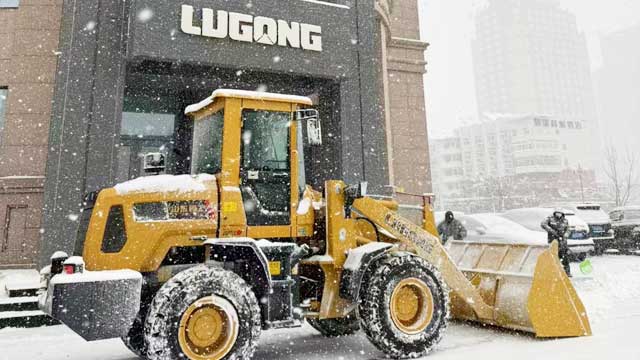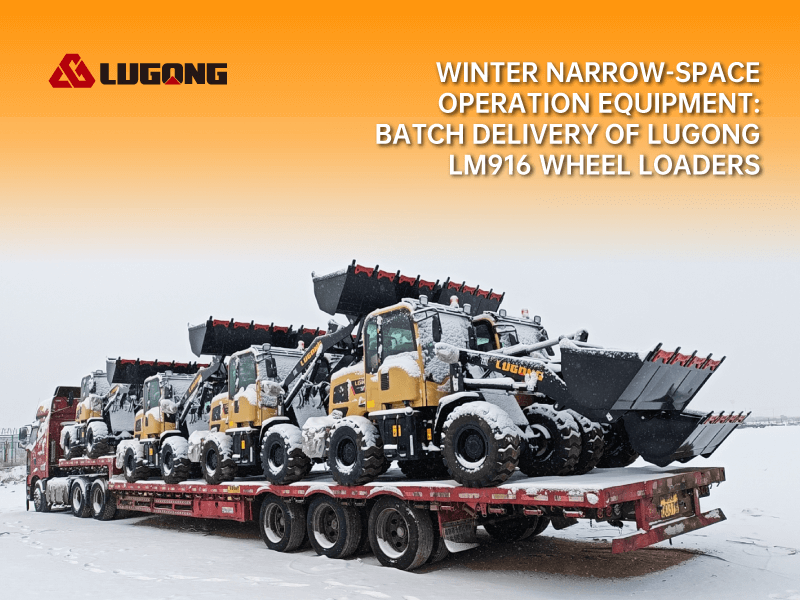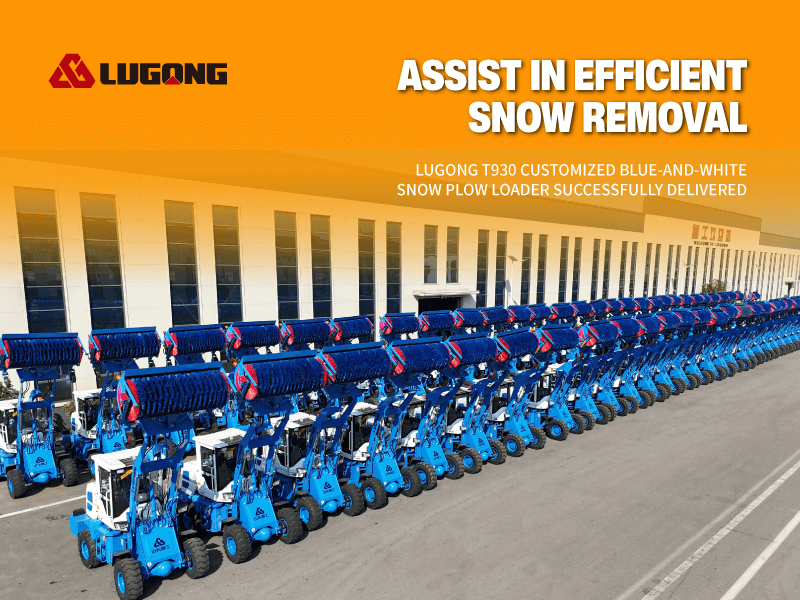Prepping Your Wheel Loaders For Winter Jobs
Winter brings its fair share of challenges, especially for heavy machinery like wheel loader. As temperatures drop and snow piles up, it becomes crucial to properly prepare your wheel loaders for the harsh winter conditions. Here are some essential tips to ensure your equipment performs at its best during winter jobs.

1. Inspect and maintain the cooling system
Before winter sets in, thoroughly inspect the cooling system of your wheel loaders. Check for leaks, ensure the coolant is at the proper level, and replace any worn-out hoses or belts. Cold temperatures can put additional strain on the cooling system, so it’s vital to have it in optimal condition to prevent overheating.
2. Change to winter-grade lubricants
Cold weather can cause lubricants to thicken, leading to increased friction and reduced efficiency. Switching to winter-grade lubricants will help maintain proper viscosity and ensure smooth operation of your wheel loaders. Consult the manufacturer’s recommendations for the appropriate lubricants for your specific model.
3. Install winter tires or chains
Traction is crucial when operating wheel loaders in snowy or icy conditions. Consider installing winter tires designed specifically for heavy machinery, as they provide better grip and traction on slippery surfaces. If winter tires are not an option, using tire chains can also significantly improve traction and stability.
4. Check and maintain the electrical system
Extreme cold can affect the electrical system of your wheel loaders. Inspect the battery, terminals, and cables for any signs of damage or corrosion. Clean and tighten connections, and consider using battery blankets or heaters to prevent the battery from freezing. Additionally, inspect the alternator and starter motor to ensure they are functioning correctly.
5. Protect the hydraulic system
Cold temperatures can cause hydraulic fluids to thicken, leading to reduced performance and potential damage to the system. Check the fluid levels and consider using a winter-grade hydraulic fluid to maintain proper viscosity. Inspect hoses and fittings for any leaks or signs of wear, as they can worsen in cold weather conditions.
6. Ensure proper lighting and visibility
Winter months often mean reduced daylight and poor visibility due to snowfall. Check that all lights, including headlights, taillights, and work lights, are functioning correctly. Clean and replace any damaged or dim bulbs to ensure optimal visibility during winter jobs.
7. Implement regular maintenance and inspections
Regular maintenance is key to keeping your wheel loaders in top shape during winter. Follow the manufacturer’s recommended maintenance schedule and conduct regular inspections to catch any potential issues early on. It’s better to address minor problems before they escalate into major breakdowns during critical winter jobs.
By following these essential tips, you can ensure your wheel loaders are properly prepped for winter jobs. Taking the time to inspect, maintain, and address any potential issues will enhance their performance, extend their lifespan, and keep your operations running smoothly even in the harshest winter conditions.For more questions about loaders, please contact Lugong.


